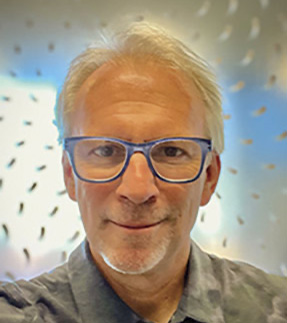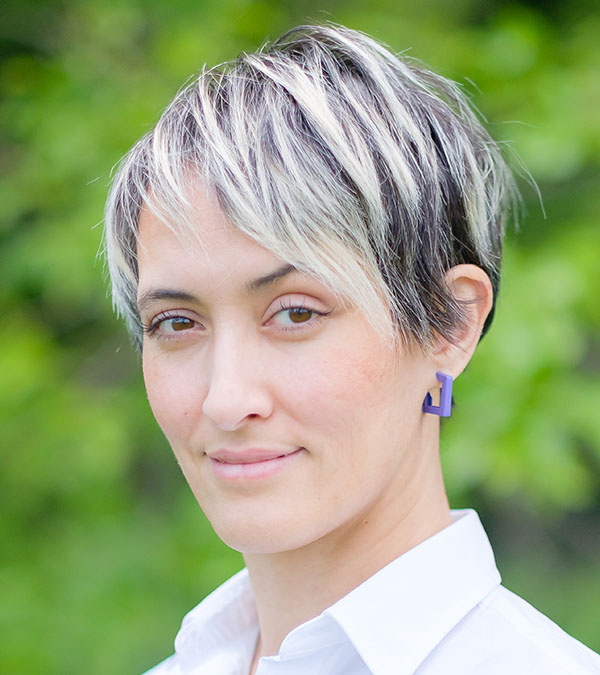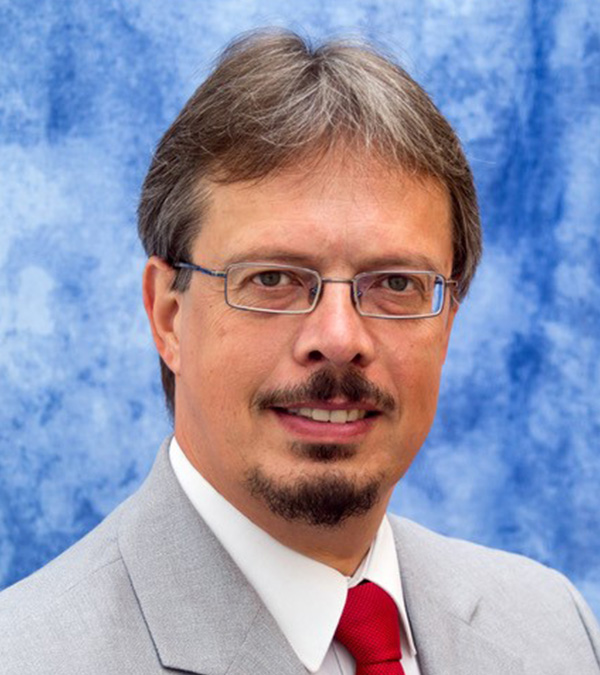Bernard Kress
Director, XR Engineering, Google LLC
2023 President, SPIE
Optics and Photonics as key enabling technologies for smart glasses
16:15-17:05

Bernard Kress
Director, XR Engineering, Google LLC
2023 President, SPIE
Optics and Photonics as key enabling technologies for smart glasses
16:15-17:05
“Optics and Photonics have been proven to be key enabling technologies for all constituting sub-systems in next generation smart glasses, such as in display sub-systems, sensor sub-systems and imaging sub-systems.
Consumer mass adoption of AR headsets are conditioned by solving all three immersive displays comfort pillars: wearable, visual and social. To do so, new micro- and nano-fabrication challenges need to be addressed, specifically more efficient waveguide combiners and smaller display engines and coherent sensor fusion systems. Novel nanofabrication techniques are needed to improve the performance of flat optical display systems while allowing for mass production at consumer cost levels. Such novel nano-fabrication technologies push the envelope beyond what is possible today with traditional nano-imprint lithography.”
Bernard has been involved in Optics and Photonics for the past 25 years as an author, instructor, associate professor, engineer, and hardware development manager in academia, start-ups and multinational corporations, with a focus on micro-optics, diffractive and holographic optics. He successively worked on product developments in the fields of optical computing, optical telecom, optical data storage, optical anti-counterfeiting, industrial optical sensors and more recently in immersive displays for augmented and mixed reality systems.
Bernard published several books, holds close to 100 patents, and wrote a > few hundred papers on these topics.
He is the 2023 President of the International Society for Optics and Photonics (SPIE). He also set up and chairs various SPIE conferences including the SPIE AR/VR/MR co-located with Photonics West and the SPIE Digital Optical Technologies co-located with Laser Munich. He is also a short course instructor on micro-optics and ARVR displays and hosts the monthly online SPIE AR|VR|MR fireside chats.
Bernard held engineering management positions at Google [X] Labs since 2010 (Google Glass) and Microsoft since 2015 (HoloLens). He is since 2021 the Director for XR engineering at Google in Mountain View, CA.

Fatima Bencheikh
CEO & CTO, KOALA Tech Inc.
Organic semiconductor laser diode: challenges and perspectives
17:05-17:55
Organic lasers have the potential to add value to OLED technology, expanding its applications by providing highly directional monochromatic light.
In this talk, we will discuss a comprehensive investigation of the influence of exciton and photon losses on the performances of organic semiconductor laser diodes.
Our findings indicate that the exciton loss affects the laser threshold while the slope efficiency remains unaffected.
Conversely, photon losses affect both the lasing threshold and slope efficiency.
Fatima Bencheikh, Ph.D., is the chief executive and technology officer of Koala Tech. Inc. and a visiting associate professor at Kyushu University.
Her research interest is organic optoelectronic devices with a focus on OLED and organic semiconductor lasers.
She received her Ph.D. degree in micro and nanoelectronics from Aix-Marseille University, France.
Eager to discover a new way of life and new work culture, she moved to the land of the rising sun, Japan in 2016.
From 2016 to 2019, she has been working as a postdoctoral fellow under the supervision of Prof. Chihaya Adachi at Kyushu University.
In March 2019, Fatima Bencheikh co-founded a startup venture named KOALA Tech. Inc., an innovative high-tech startup company; whose goal is to pioneer practical applications of OSLDs that have been recently realized at Kyushu University.

Markus Roth
Chief Science Officer and Founder, Focused Energy Inc.
Proton Fast Ignition as a path to commercial fusion energy
17:55-18:45
The first successful ignition of a fusion reaction and the first demonstration of scientific energy gain have changed the direction of fusion research from fundamental research towards the question of how commercial energy production can be achieved.
Focused Energy is a US/German startup working to commercialize fusion energy.
Over the last two years we have gathered the best laser fusion scientists from both sides of the Atlantic. Upon a careful analysis of all the individual aspects of laser fusion Focused Energy has chosen the direct-drive, proton fast ignition approach as, to our belief, the most robust pathway to commercialize laser fusion energy.
This talk will present our considerations, based on many decades of research around the globe, and our roadmap towards a first fusion reactor by the end of the next decade.
Markus Roth, Ph.D. is a professor of laser and plasma physics at the university of technology (TUDa) of Darmstadt, Germany.
For more than 25 years he has been spearheading particle acceleration by ultra-intense lasers.
He started working on laser fusion in 1999 as a scientist at LLNL and since worked on most of the large laser facilities around the world.
He has become a fellow of the APS for his contributions to particle acceleration and laser-driven neutron sources, has been an honorary Professor at University of Kyoto (Mitsuyuki Abe chair) for a couple of years, and has been a consultant to national laboratories in the US, UK, and Europe.